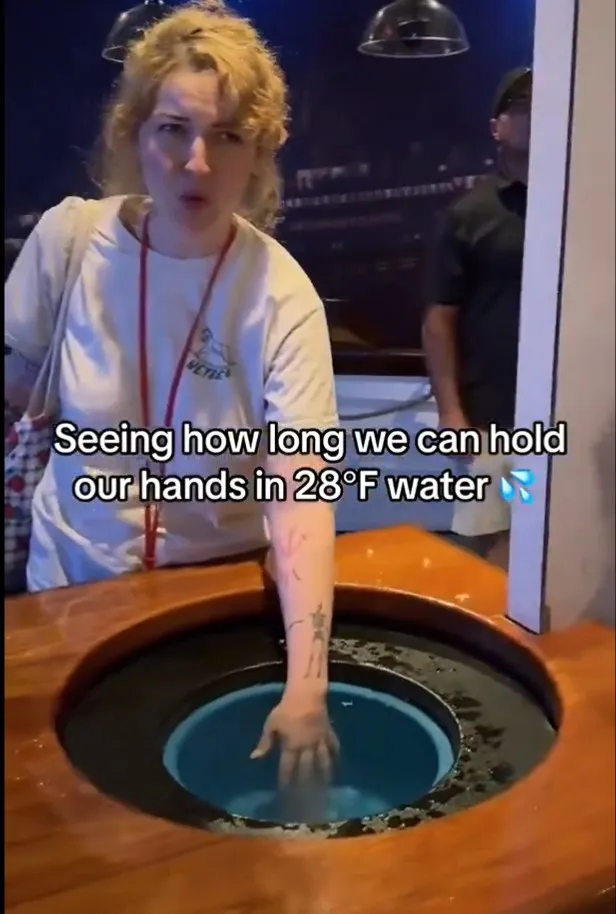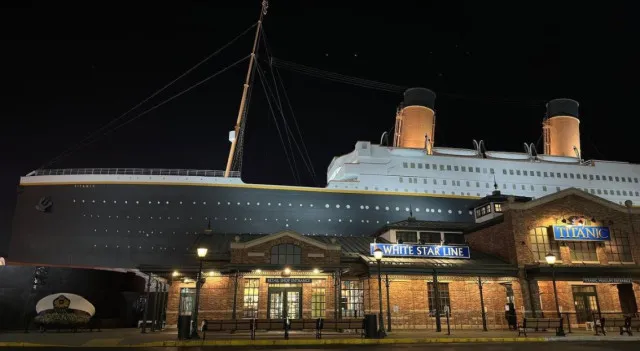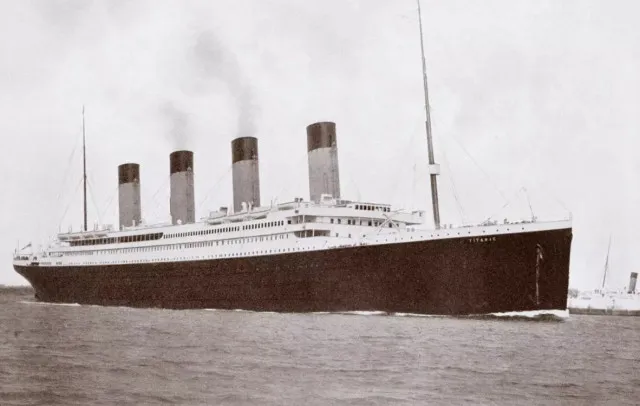The Titanic Museum has introduced a new feature that lets visitors experience the sensations felt by those who went overboard.
The Titanic Museum in Tennessee has introduced a chilling new feature.
It allows visitors to experience the frigid conditions faced by passengers who went overboard during the infamous sinking of the Titanic.
This attraction, shaped like a half-scale model of the original ship, aims to provide an immersive educational experience.
It also honors the memory of those who lost their lives.

The Titanic Museum is a captivating place for passengers
The museum is home to over 400 authentic artifacts, valued at more than $4.5 million.
It offers a variety of exhibits that recreate the ship’s rooms and the experiences of its passengers.
The Titanic Museum offers visitors full-scale recreations of the ship’s rooms and features costumed cast members.
Upon arrival, guests receive a boarding pass with the name of a real passenger.
They learn the passenger’s fate in the Titanic Memorial Room, which honors 2,208 names.

Titanic Museum launches feature allowing visitors to feel how victims overboard felt
One of the standout features of the museum is a temperature-controlled water exhibit.
This element allows guests to dip their hands into water that is maintained at the same temperature that the Atlantic Ocean was on the night of April 15, 1912: a chilling 28°F (-2.2°C).
This freezing temperature starkly reminds visitors of the dire circumstances faced by passengers after the ship struck an iceberg.
The feature can show clearly the extreme conditions they endured that fateful night.

Visitors shared their feelings when experiencing the feature on social media
Recently, a group of visitors decided to test their endurance by placing their hands in the icy water.
Their reactions were captured on video and quickly went viral on social media.
The first visitor remarked on the unbearable cold, managing to keep her hand in for only 20 seconds before withdrawing it.
A second participant described the sensation as a “burning feeling” that lasted just eight seconds.
He then humorously declared, “I’m dead” as he pulled his hand out.

The third participant, determined to win a challenge, attempted to keep her hand in for two minutes.
As she struggled with the cold, she repeatedly exclaimed, “Oh my God,” questioning whether it was becoming dangerous.
She managed to endure the freezing water for an impressive 40 seconds.
However, she stated that it would take a much larger incentive, at least $500 for her to consider enduring the cold any longer.
In addition to this chilling feature, the museum provides extensive information about the ship’s construction and its maiden voyage.
It also covers the aftermath of the Titanic’s sinking.
Interactive displays and knowledgeable staff members provide a comprehensive look at one of history’s most infamous maritime disasters.

The Titanic disaster has obsessed many until now over its huge victims and damages
The Titanic was a luxury British passenger liner that tragically sank on April 15, 1912, during its maiden voyage from Southampton to New York City.
Considered the largest and most luxurious ship of its time, the Titanic was marketed as “unsinkable” due to its advanced safety features.
However, on the night of April 14, the ship struck an iceberg in the North Atlantic Ocean around 11:40 PM.
The collision caused significant damage, flooding several compartments.
As the ship began to sink, chaos ensued among passengers and crew.

The Titanic was equipped with only enough lifeboats for about half of those on board, leading to a critical shortage of escape options.
Many passengers were unable to access lifeboats as they struggled to understand the severity of the situation.
By 2:20 AM on April 15, the Titanic had completely submerged. Of the approximately 2,224 people on board, more than 1,500 lost their lives, making it one of the deadliest maritime disasters in history.
The tragedy prompted widespread public outrage and led to significant changes in maritime safety regulations.
These included lifeboat requirements and improved safety protocols to ensure that such a disaster could never happen again.